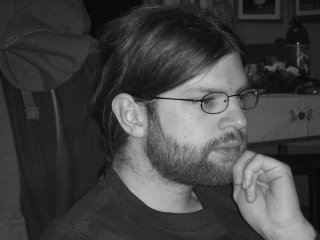The New Life Ministry for
‘I started the organization about six years ago. It was a dream and the dream has come true. I was one of the lost boys who went to the
James threw himself into his work with enthusiasm that would eventually prove infectious. Taking the initiative himself he made his own way to
This DIY attitude was to give James the momentum he needed to get his project off the ground. He started teaching classes on his own under trees. Teaching up to three classes at a time with no real resources to speak of he would spend his time going from one group to the next and give each class something to sing or recite while he moved between the three. He at this point had nobody else to assist him and he used to have to and fetch water from the river for the children. ‘I couldn’t afford even a bicycle.’ He tells me and explains that in those early days there were times when he had to sell his own clothes simply so he and the children could eat. However his use of the meager resources available to him was to prove crucial in securing further assistance.
‘One of the days I came to
The local community also came to use the borehole. James then opened up three clinics in the area to help the local people in 2003. ‘I could not also close my eyes to those children who lived close to the school and were poor. I allowed them to come free to the school under the tree.’
‘When I came to
‘All the children were under the tree and they would leave when it got too hot and when the wind blew the papers in their hand would blow away and even the blackboard would blow over. When I got money I constructed classrooms for them.’
‘People in the area were going to the river for water and this often caused them to be sick so I constructed eighteen boreholes in the area. When I started in this area it was just bush but now it has become a town. People used to say “You will run away” and I said “If I run away God will see.”’
Once he had helped to ensure a future for the local people and they would not be forced to leave the area James was now able to concentrate on his main priority. Helping young people who like him had been orphaned. He explains how there were no shortage of children in need of assistance, ‘From there I could start concentrating on the orphans. From 153 orphans the number increased to 303 orphans last year, 2006 to 400 now in 2007.’
I ask him about how he feels that a young man like him should have to provide such services for so many people and if he feels the New Sudan is developing in the way it should he gives a typically candid answer, ‘Health is a big issue in Southern Sudan. We got peace but we are not concentrating on development. Then what did our people die for? They died for development, they died for education, they died for our rights, because of people being neglected. I want everybody inside and out to understand that it is our task to work to improve the situation, to change the system.’ He feels that it is the responsibility of Sudanese people to help themselves and to take the responsibility for the development of their society and illustrates the enormity of the task New Life Mission. ‘We have constructed the biggest orphanage in
When asked how he feels about Foreign NGOS who come to
James is also extremely proud that the buildings built by New Life Mission are made from concrete and not out of prefabs or mud bricks as many foreign NGOs use. He feels that it means that something will be left behind for future generations and the buildings will guarantee that children can be helped and educated for many years to come.
Further to this as he employs only Sudanese people he feels that not only is money not leaving the region but skills and experience are arriving. He feels that this experience will be invaluable. ‘What I need is for them to work hard. Every child of
Skilled labourers were initially brought in from
He feels it is extremely important that Sudanese people learn to help themselves and feels that anybody living in the Diaspora who have skills and experience that can help the people of
His contact details are;
Satellite phone: + 88 216 4333 5404
Email: jameslual@yahoo.com

